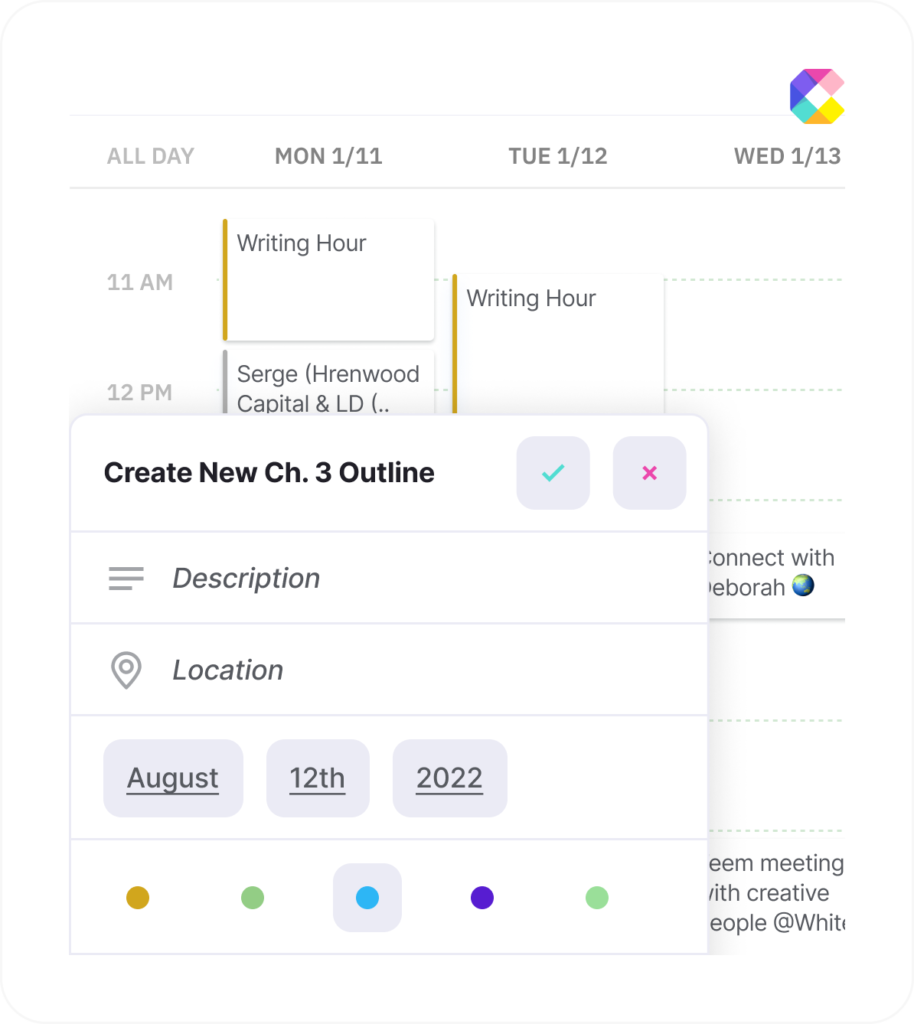If you’re wondering when the best time to take a break from writing is, then this is the guide for you!
In our sister article, I discuss if you should stop writing. While that gives a lot of clues to my option of quitting, this article offers more in-depth feedback and advice for when and how you should take a break.
Every writer wonders if they should take a break or quit. So if you’re struggling with this question, know that you’re not alone! The purpose of this article is to help guide you to the best choices when you’re losing faith or hope in your writing, or the will to put pen to paper. (or fingers to keys, if you prefer that method.)
Don’t make this difficult decision alone—let me help you make the decisions that best fit you life and reasons. This too, shall pass, no matter how hard things might seem. So if you’re ready to dive in and discover if you should take a break from writing, then click through to this article, grab a pen and paper to take notes, and rest assured you’re in very capable hands.
When is it best to just take a break from writing?
In a sister article, we tackled the tough topic of When is it time to stop writing?
While that covers a lot of reasons people should potentially stop writing or simply take a break, this is going to focus more on when—and warning signs—that you need to take a break. While there will be some crossover, please know that every effort has been made to not rehash the same talking points.
Now, if you’re contemplating taking a break from writing, I’m going to tell you right now; do it.
Take a day.
Take a week.
Take a month.
Whatever length of time you choose, I challenge you to put down the work and walk away for a while. Make sure you set a date to pick up your book or your work and reread them.
Why should you take a break?
Because often when authors think they need a break, they’re right.
Writing takes a serious physical and emotional toll on writers. While it’s not often discussed, there’s a huge weight to creating entire worlds, characters, and stories. Watching characters we love struggle, suffer, and potentially die triggers an emotional response in us similar to actual loss. While that emotional trauma often isn’t on par with losing a living, breathing loved one or friend, it can still take a toll on your mental health.
And this sensation can be hard to articulate. It might feel like sadness. A lack of desire to write. Fear of continuing. Exhaustion, either physical or mental. Every author feels a different level of burden from their writing, and I’m not talking the burden of deadlines, reader’s expectations, or even the physical burden. I simply mean the emotional toll.
When you’re facing these feelings, take a break. Clear your mind. Mourne losses, even if they’re just characters in a world you’ve created in your mind and on paper. There’s no shame in feeling; if anything, that simply proves you’ve created something with an emotional bond that readers will feel. If you’re moved by your story, that story and those emotions will resonate with readers too.
What about the physical aspect?
If you spend countless hours hunched over, staring at your computer screen, you’re bound to cause problems. From a lack of circulation to pain to stress and strain on shoulders, arms, fingers, tendons, and muscles, writing can put your body through the ringer.
If you’ve been hitting the writing hard, you might start to notice new or worsening pain. An aching back, hips, or legs, numbness and tingling, and so on. I highly recommend you check in regularly with your primary care physician and apprise them of the situation, how you’re feeling, and any pain you experience. This can help them help you find safer, more healthy alternatives. The doctor will have plans and ideas that’ll help you stay healthy while writing, but you need to make the first move.
And whatever advice you’re given, follow it! Make sure you’re regularly stretching, hydrating, and taking care of yourself while writing. You’ve got this!
When the mental toll should be brought up with a professional.
I’m an advocate for everyone undergoing therapy. Look, life is hard. Having someone to help you sort through and process your emotions can be an invaluable asset and a great way to help keep your mind focused, clear, and at your best.
On top of that, writing can be an incredibly isolating career. Feelings of isolation can lead to mental health troubles, and should absolutely be discussed with a professional. You’re a creator of worlds, of characters, of stories! Lean on someone when you’re going through a rough time, because there’s no shame in needing and asking for help.
Other reasons to take a break:
If you’re feeling burnt out.
Burn out is very common. If writing doesn’t bring you joy or satisfaction, then simply take a break. Come back to your writing later, reread it, and rediscover what drove you to write in the first place. Burn out can feel like a lack of motivation, boredom, or a lack of interest in writing.
You just don’t want to write.
This happens to every good writer. Does it mean you’re failing somehow? Or that you’re lazy and procrastinating? Well, maybe, but not likely. Sometimes a lack of will to write just means you need a break.
Life keeps getting in the way.
Your dog is sick, extended family want to see you more, kids are demanding more of your time, you’re sick or injured, etc. Sometimes life forces us to prioritize other aspects of our lives that take away from writing. If life is demanding more from you, then consider taking a break from writing. (Unless writing helps you keep a grip on your sanity, then maybe don’t.)
Feeling lost on what to write next.
Many authors think their ideas are infinite. You’d be surprised how many writers need a nudge and help to know what to write next. Sometimes taking a break can help you come back refreshed, especially if you tackle things that have been looming overhead and making you anxious. Also, a get away to nature tends to be a big help for a surprising majority of writers, so consider getting back to nature!
Other commitments are elbowing in.
We’re all adults here. And as adults, we know that sometimes, other life commitments crash our parties. Whether you’re going through a life event like buying a home, having a baby, getting married or divorced, moving, or even less stressful changes like buying a car, working a day job, or supporting a loved one or spouse through a tough time, life has a way of making us step back and refocus our attention. If life needs you right now, take a break from writing. You can always come back when things calm down.
Give yourself permission to take a break—your stories, characters, and worlds will still be there waiting for you!
You’ve decided to take a break… now what?
Well, now you need to focus on you. On your life.
Get those pesky chores done. Spend time with loved ones, have a girl or guy’s night out. Get out of the house, away from the computer, and have fun. Take care of yourself, be kind to yourself, and remember to take some me-time.
Whatever you do that revitalizes you and makes you feel alive… do more of that. Go for a hike or camping trip. Go relax in a hot tub. If you’re able, take a short vacation. Rewatch your favorite movie or see a new film. Spend time with your favorite person or people. Have deep discussions. Do whatever leaves you feeling powered up and ready to go.
Try something new! Try a new hobby, a new activity, or even a new type of art. Just get out of your writing headspace for a while and live.
Examine your reason for needing a break. It’s important to note that this should come from a place of curiosity, not guilt or fear. Examine your needs gently and perhaps that’ll help clear up a funk or help you set goals and plans to avoid future struggles.
The best parts of taking a break:
It’s no secret that some bestsellers love to work on multiple projects. When they come back to one after working on another (or come back after a break) they claim their minds are much more clear and their perspectives have often shifted since writing. After a long period of writing or working on one project, we wind up with ‘tired eyes’ that can miss errors, angles, and exciting twists and turns.
Why is this important?
Well, simply taking a break from your project can make all the difference when you come back. This doesn’t mean you have to work on more than one project, but it does mean that time away can help you forget what you’ve written and come back with new eyes.
Regular breaks can make your writing stronger. Breaks can improve your mental health, your physical health, and help you be your best. So if you’ve been considering taking a break from writing, do it.
Just make sure you have a set date to come back, because it can be easy to quit and not look back, but that might leave you feeling like there’s a void in your life you can’t quite fill.
So take care of yourself, then come back with fresh eyes, a skip in your step, and a new excitement in your veins. Then you pick up where you left off creating books readers love that make your mind happy.
You’re a writer! But like everything else in life, you don’t have to be a writer 24/7. Take a break!

Goals Calendar
The goals calendar will help keep you on track and ensure deadlines are met. It will keep you accountable to your goals and help ensure timely story completion.



